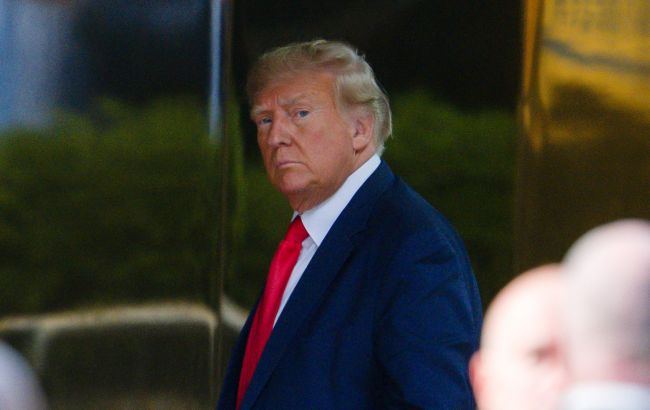Trump's ballot disqualification sparks fury directed at Colorado justices
 Photo: Trump's ballot disqualification sparks fury directed at Colorado justices (GettyImages)
Photo: Trump's ballot disqualification sparks fury directed at Colorado justices (GettyImages)
Following the Colorado Supreme Court's decision to disqualify Donald Trump from the state's Republican primary ballot, justices have faced a surge of violent threats on social media, according to NBC News.
The threats emerged after the court ruled against Trump, with Advance Democracy, a nonpartisan organization, reporting a significant increase in violent rhetoric directed at the justices and Democrats.
Social media users, responding to Trump's posts about the ruling, have posted personal information of the justices and suggested various methods of violence.
On a pro-Trump forum utilized by some Jan. 6 rioters, users wrote the following threats: "This ends when we kill these f--kers," "What do you call 7 justices from the Colorado Supreme Court at the bottom of the ocean? A good start." On a fringe website, a post read, "Kill judges. Behead judges. Roundhouse kick a judge into the concrete."
This pattern of threats against officials after legal setbacks for Trump has been observed in several other instances, including after the FBI's search of Mar-a-Lago and indictments against Trump. Daniel J. Jones, president of Advance Democracy, expressed concern over the normalization of such violent rhetoric and the role of social media platforms in hosting and promoting it.
Historic ruling
The Colorado Supreme Court, composed entirely of justices appointed by Democratic governors, made a historic ruling declaring Donald Trump ineligible to appear on the state's primary ballot. The seven-member court was divided in its decision, with three justices dissenting.
The court handles various criminal, civil, election, and family law cases. Justices are appointed by the governor and confirmed after a bipartisan nomination process, serving at least two years before facing a retention vote for a 10-year term.
In this case, four justices (Gabriel, Hart, Márquez, and Hood) agreed on Trump's ineligibility, while three (Berkenkotter, Samour, and Boatright) dissented. The dissent primarily centered on the absence of any criminal conviction against Trump.
This ruling has sparked criticism from some Republicans, labeling the court's decision politically motivated. However, the majority emphasized their commitment to applying the law impartially.
Previously, the court has handled other high-profile cases, including a baker refusing to make a wedding cake for a same-sex couple and another case about a cake celebrating a gender transition.
Escalating threats
The background of these threats is linked to a series of legal challenges and actions involving Donald Trump, which have frequently resulted in his supporters targeting those perceived as opponents.
The Colorado Supreme Court's decision is the latest trigger in this ongoing issue, reflecting a broader trend of escalating violence and threats in the political landscape, particularly in response to legal decisions impacting Trump.
This situation raises concerns about the safety of judicial and political figures and the impact of inflammatory rhetoric on public discourse and social media platforms.
Recently, we wrote that the team of former U.S. President Donald Trump is anticipating that he could officially secure the nomination as the Republican Party's presidential candidate by March 19.

